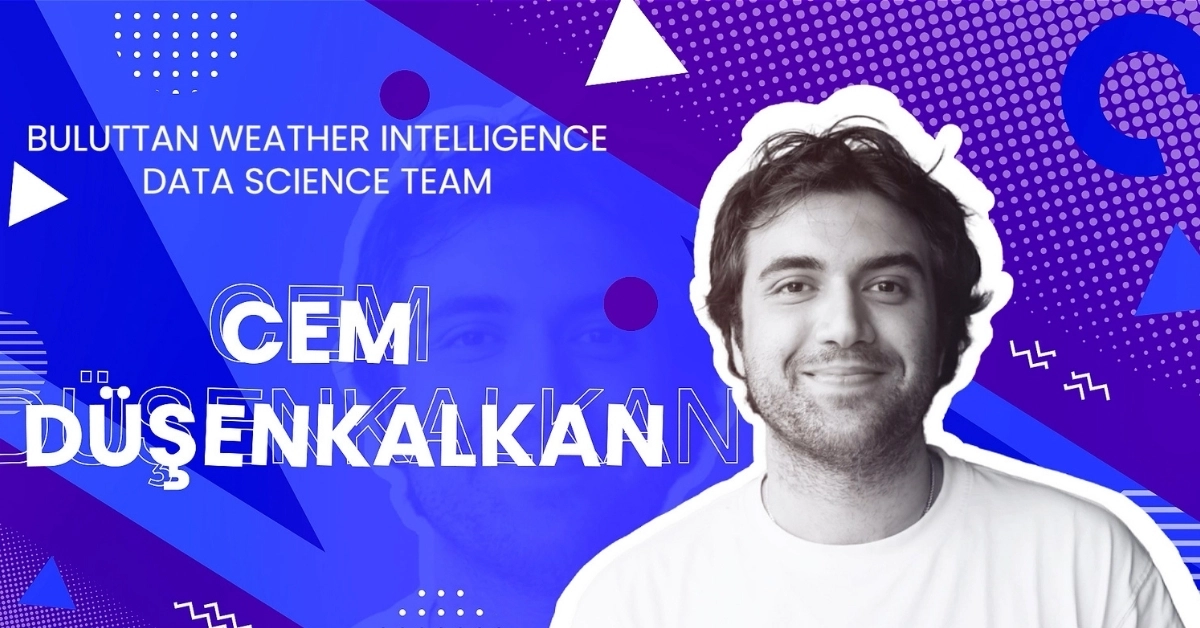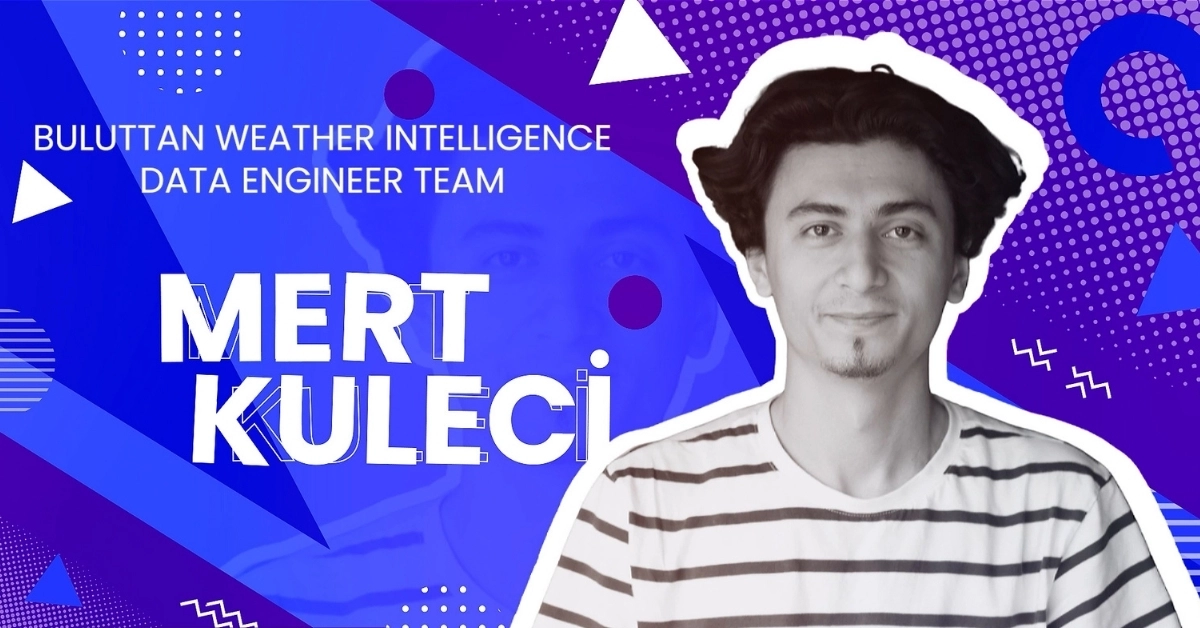In this episode of Buluttan Small Talks with Begüm. Begüm shares with us today what she does as a meteorological engineer intern at Buluttan, her views on the future of Buluttan, and the things she enjoys doing.
Gökmen: Today, we are here with Begüm. Welcome, Begüm.
Begüm: Thank you.
Gökmen: How are you?
Begüm: I’m fine, thank you. How are you?
Gökmen: I’m good too, thank you. Today, we will talk about who Begüm is, what she does, and how her path crossed with Buluttan. We’ll try to get to know her a bit better, and maybe those watching will find something useful. First of all, who is Begüm?
Begüm: Begüm is a senior meteorological engineering student and is about to graduate now.
Gökmen: Congratulations in advance. Let’s see.
Begüm: Currently, she is also working as an intern at Buluttan.
Gökmen: What does it mean to work as an intern at Buluttan? What do you do mostly? Please explain a bit, maybe there are friends who might be inspired to apply from what you share. So, please tell us a bit.
Begüm: What I do is mainly the analysis of atmospheric data. That is, processing it, using programming languages like R or Python to analyze atmospheric data and reporting the analyses I’ve done. Those are my main tasks.
Gökmen: Is it hard? Do you enjoy it?
Begüm: I do it with pleasure, actually. It’s informative for me as well, and I enjoy doing it.
Gökmen: Who do you work with most closely?
Begüm: I work mostly with Büşra. I like her a lot.
Gökmen: Then let’s send our regards to Büşra from here.
Begüm: She is really an educational person. She has contributed a lot to me. I learn a lot from her, so I thank her. Thank you, Büşra.
Gökmen: So, Begüm is currently a senior in meteorological engineering and will soon be an atmospheric scientist, probably in a couple of months at most. How do you see meteorology? Did you like it? Did you choose it willingly? Or do you now think, “How did I end up in this weather and water stuff?” How does it sound to you now?
Begüm: Honestly, I love meteorology now, but it wasn’t my primary choice. When I was entering, I kind of made a faculty choice. I wanted to choose the Faculty of Aeronautics and Astronautics, thinking I might transfer horizontally later. So, meteorology wasn’t my main goal when preparing for the exam, but after studying it, I really liked it. I realized that by studying meteorology, one can actually turn to many different fields. The concept of meteorological engineering is really broad and I think it’s a profession very open to development.
Gökmen: Hopefully, we have also contributed a bit by showing what can be done or different applications and experiences. What do you do in your spare time, Begüm, when you are not sleeping, studying meteorological engineering, or working? Are there any hobbies you would like to share?
Begüm: Yes, maybe I can mention my hobbies at this point. I enjoy playing the guitar and drawing. Those are my main hobbies.
Gökmen: So, you play the guitar and especially draw a lot. Drawing is more prominent these days.
Begüm: Yes, it’s really intense preparing for graduation.
Gökmen: We have been working together for about six months. You are both learning and contributing to some topics. Hopefully, it will increase. What would you share with those who are in the third, second, first year, or even those who haven’t entered the field yet about meteorology? Maybe including Buluttan, maybe not.
Begüm: At this point, my shares could actually include focusing on programming languages. R and Python are very useful to us in many aspects. We deal with really big data in meteorology, which can be very time-consuming. To shorten these processes, working on programming languages and improving yourself in this area can be important.
Gökmen: Yes, tips are coming. Programming languages Python and R, anything else?
Begüm: Also, there’s a synergy and interaction between AI models and physical models, namely numerical weather prediction models. The influence of AI is increasing every day. I think AI will increasingly have a counterpart in meteorology. Maybe AI will be as prioritized as software and coding languages in computer science.
Gökmen: So, what would you like to say as a final note, Begüm? What advice would you give to those considering applying here, those who want to do something here, or those who will graduate in meteorological engineering?
Begüm: I would recommend applying to Buluttan, frankly. I enjoyed working here as an intern. I learned a lot. It’s a great opportunity to develop yourself.
Gökmen: Now they will think this is an advertisement since you said that. Anyway, Burcu will put it without cutting, so it will be understood that it’s not an ad.
Begüm: Yes, it sounded very much like an advertisement. These are what came to my mind.
Gökmen: Then we say you can apply to Buluttan if you are interested in being in the triangle, or rather quadrilateral, of AI, software, meteorology, and data. Any message? Okay, then we close with ads. May your weather be clear. Don’t forget to apply to Buluttan.







